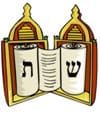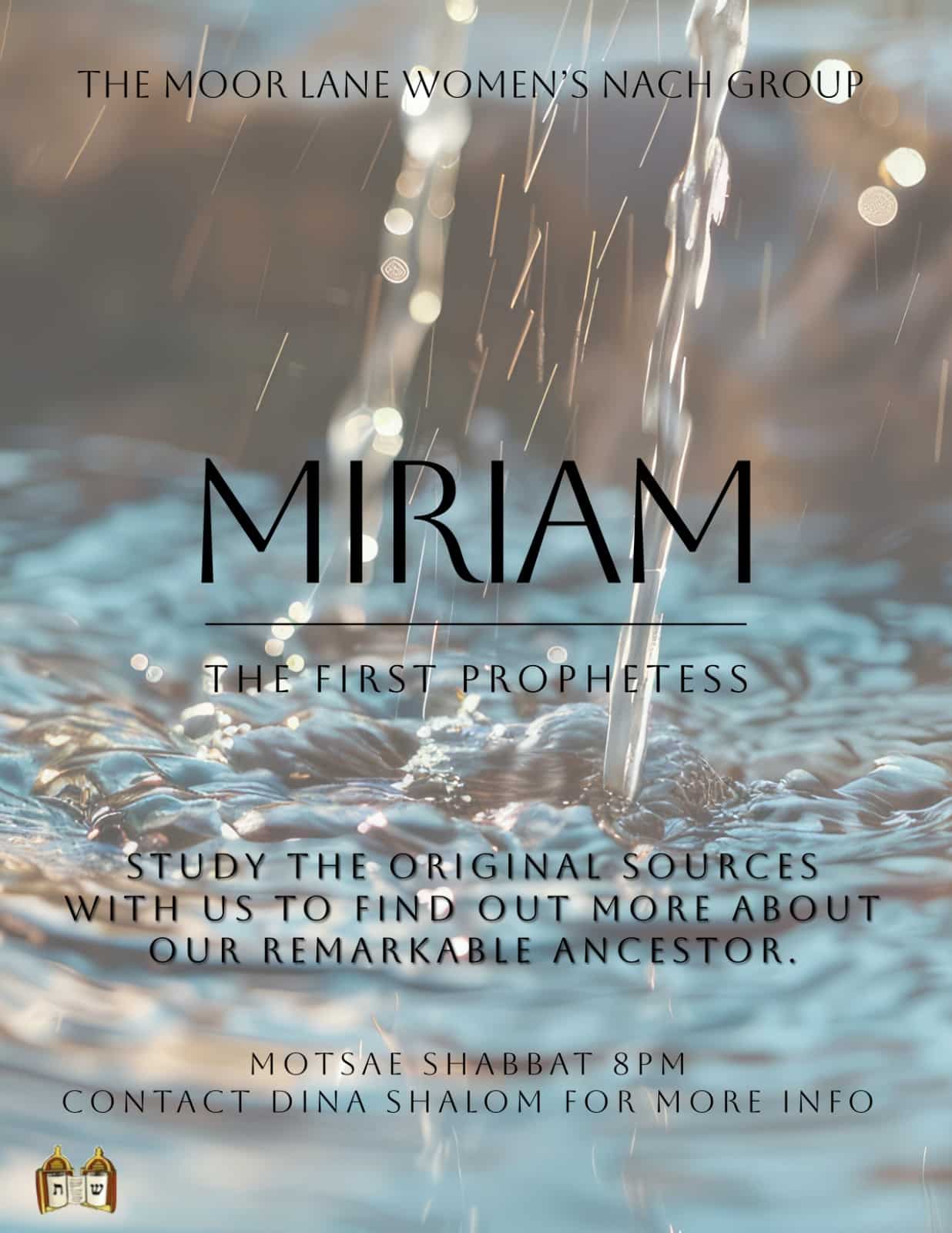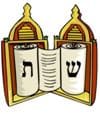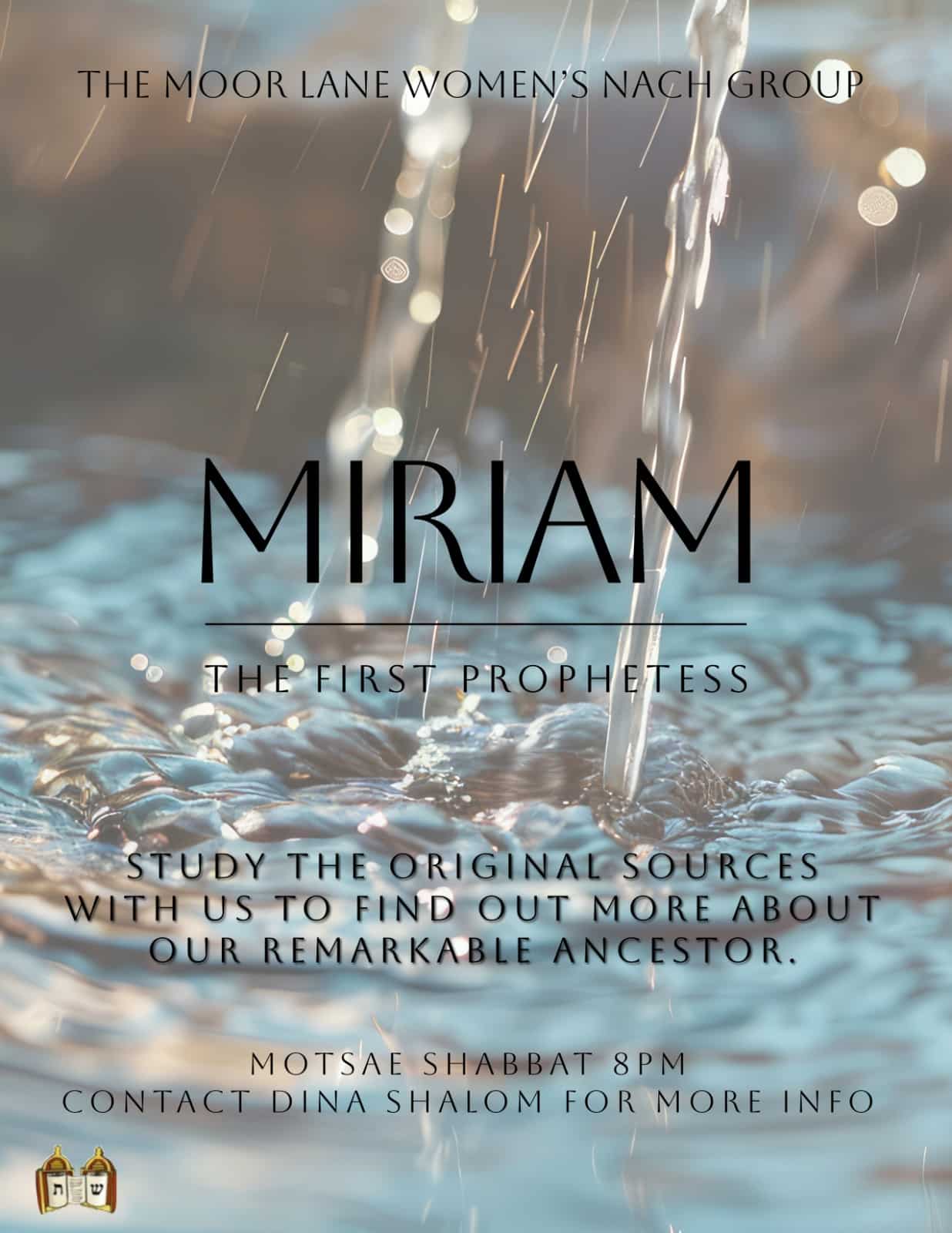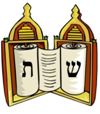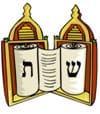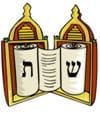
ק׳ ק׳ שׁערי תפילה

*****

🗓️
לוח זמני תפילה לחורף תשפ״ה
Winter Timetable 5785 – 2024/25
מוצאי שבת | ערבית | שקיעה | מנחה שבת | סוף זמן קריאת שמע | הדלקת נרות | מנחה וקבלת שבת | תאריך | שבת פרשת |
Shabbat Ends | Arbit | Sunset | Minha | Shema before | Candle Lighting | Minha & Kabbalat Shabbat | Date | Parasha |
PM | PM | PM | PM | AM | PM | PM |
|
|
5:45 | 5:41 | 4:51 | 4:15 | 10:08 | 4:35 | 4:35 | 31Jan /1 Feb | בא |
שבת
קרבנות
8:45 am
הודו
9:00 am
****

🌃
Winter Season
1hr 15 mins after Motzae Shabbat
📚 THIS WEEK 7:00 pm 📚
*****
G-d tells Moshe that He is hardening Pharaoh's heart so that through miraculous plagues the world will know for all time that He is the one true G-d. Pharaoh is warned about the plague of locusts and is told how severe it will be. Pharaoh agrees to release only the men, but Moshe insists that everyone must go. During the plague, Pharaoh calls for Moshe and Aharon to remove the locusts, and he admits he has sinned.
G-d ends the plague but hardens Pharaoh's heart, and again Pharaoh fails to free the Jews. The country, except for the Jewish People, is then engulfed in a palpable darkness. Pharaoh calls for Moshe and tells him to take all the Jews out of Egypt, but to leave their flocks behind. Moshe tells him that not only will they take their own flocks, but Pharaoh must add his own too.
Moshe tells Pharaoh that G-d’s going to bring one more plague, the death of the firstborn, and then the Jews will leave Egypt. G-d again hardens Pharaoh's heart, and Pharaoh warns Moshe that if he sees him again, Moshe will be put to death. G-d tells Moshe that the month of Nissan will be the chief month.
The Jewish People are commanded to take a sheep on the 10th of the month and guard it until the 14th. The sheep is then to be slaughtered as a Pesach offering, its blood put on their doorposts, and its roasted meat eaten. The blood on the doorpost will be a sign that their homes will be passed-over when G-d strikes the firstborn of Egypt. The Jewish People are told to memorialize this day as the Exodus from Egypt by never eating chametz on Pesach.
Moshe relays G-d's commands, and the Jewish People fulfill them flawlessly. G-d sends the final plague, killing the firstborn, and Pharaoh sends the Jews out of Egypt. G-d tells Moshe and Aharon the laws concerning the Pesach sacrifice, pidyon haben (redemption of the firstborn son) and tefillin.
Ohr Somayach Institutions www.ohr.edu

אמירת קדיש
שאלה: מהי חשיבות אמירת קדיש על אדם שנפטר?
תשובה: אדם שנפטר מן העולם, מוטל על בניו שנשארו אחריו להקפיד באופן מיוחד להתפלל בכל יום שלש תפלות במנין, בכדי שיוכלו לומר קדיש על האב או האם. וכן אדם שחלילה נפטר בנו או בתו או אחיו או אחותו, יאמר קדיש לעלוי נשמתם.
ומי שנפטר מן העולם ולא השאיר אחריו בנים, טוב לשכור עבורו תלמיד חכם שיאמר קדיש לעלוי נשמתו. כלומר, יתנו עם תלמיד חכם, שתמורת סכום כסף יקבל עליו לומר קדיש בכל תפלה, כאילו הוא בנו של הנפטר. ובזה גם כן יש עלוי נשמה לנפטר, שהרי הוא אומר קדיש, ועוד שיש בכך מצוה לחזק ידי תלמידי חכמים.
ואמרו רבותינו במדרש, מעשה ברבי עקיבא שראה אדם אחד שהיה ערום ושחור כפחם, והיה טוען (סוחב) על ראשו מטען גדול של קוצים, ורץ כמרוצת הסוס. גזר עליו רבי עקיבא, העמידו ואמר לו, מדוע אתה עובד קשה כל כך, אם עבד אתה ואדונך עושה לך כך, אפדה אותך מידו, ואם עני אתה, אני מעשיר אותך. אמר לו אותו האיש, בבקשה ממך אל תעכבני, שמא ירגזו עלי אותם הממונים עלי. אמר לו מה מעשיך? אמר לו, אותו האיש (כלומר, הוא עצמו), מת הוא, ובכל יום ויום שולחים אותי לחטוב עצים ושורפין אותי בהם. אמר לו רבי עקיבא, בני, מה היתה מלאכתך בעולם שבאת ממנו? אמר לו, גבאי המס ומראשי העם הייתי, ונושא פנים לעשירים והורג עניים, ועוד עברתי הרבה עברות חמורות. אמר לו, כלום שמעת מן הממונים עליך אם יש לך תקנה? אמר לו, בבקשה ממך אל תעכבני שמא יגזרו עלי בעלי פורענות, כי אין לו תקנה, אלא שמעתי מהם דבר שאינו יכול להיות, שאילמלי היה לו לזה העני בן שהוא עומד בקהל ואומר “ברכו את ה' המבורך”, ועונין אחריו “ברוך ה' המבורך לעולם ועד”, או יאמר קדיש, ועונין אחריו “יהא שמיה רבה מברך”, מיד היו מתירין אותו מן הפורענות. אולם הוא לא הניח בן בעולם, ועזב אשתו מעוברת, ואינו יודע אם ילדה זכר מי ילמדו תורה, שאין לו אהוב בעולם. אמר לו רבי עקיבא, מה שמך? אמר לו, עקיבא. ושם אשתך? אמר לו, שושניבא. ושם מקומך? אמר לו, לודקיא. באותה שעה נצטער עליו רבי עקיבא צער גדול, וקיבל עליו לילך ולחפש אם הוליד בן, כדי ללמדו תורה ולהעמידו לפני הצבור. הלך ושאל עליו. כיון שבא לאותו מקום, שאל אודות אותו האיש. אמרו לו, ישחקו עצמותיו של אותו רשע. שאל על אשתו, אמרו לו, ימחה זכרה מן העולם. שאל על הבן, אמרו הרי ערל הוא, אפילו במצות מילה לא עסקו. מיד נטלו רבי עקיבא ומלו והושיבו לפניו, ולא היה מקבל תורה, עד שישב עליו ארבעים יום בתענית. יצאה בת קול ואמרה לו, רבי עקיבא, לך ולמד אותו. הלך ולמדו תורה וקריאת שמע ושמונה עשרה ברכות, וברכת המזון, והעמידו לפני הקהל, ואמר “ברכו את ה' המבורך” וענו הקהל, “ברוך ה' המבורך לעולם ועד”, ואמר קדיש, וענו אחריו “יהא שמיה רבה”. ואחר כך לימדו משנה ותלמוד, הלכות ואגדות, עד שנתחכם מאוד, והוא רבי נחום הפקולי, (וכמה תלמידי חכמים יצאו ממנו). באותה שעה מיד התירו המת מן הפורענות, ובא לרבי עקיבא בחלום, ואמר, יהי רצון שתנוח דעתך בגן עדן, כשם שהנחת את דעתי והצלתני מדין גיהנם. כי כשנכנס בני לבית הכנסת ואמר קדיש, קרעו לי גזר דיני הנורא. וכשנכנס לבית המדרש, ביטלו ממני כל הדינים שעלי. וכשנתחכם בני וקראוהו “רבי”, שמו כסאי (את הכסא שלי) בגן עדן בין צדיקים וחסידים, ועטרוני בכמה עטרות. בזכותך היתה לי כל זאת. מיד פתח רבי עקיבא ואמר, ה' שמך לעולם, ה' זכרך לדור ודור. ישמע חכם ויוסף לקח.
בשעת אמירת הקדיש, יש לכרוע חמש כריעות, ואלו הן: בשעה שאומר “יתגדל”, וכשאומר “יהא שמיה רבא”, וכשאומר “יתברך”, וכשאומר “בריך הוא”, וכשאומר “ואמרו אמן” (כלומר, באמירת: דאמירן בעלמא “ואמרו אמן”).
Reciting Kaddish
Question: What is the significance of reciting Kaddish for a deceased individual?
Answer: When an individual departs from this world, his surviving children must make a concerted effort to pray with a Minyan three times a day in order to be able to recite Kaddish for their father or mother. Similarly, if one, G-d-forbid, loses a son, daughter, brother, or sister, one should recite Kaddish to elevate their soul.
If one passes away childless, it is proper to hire a Torah scholar on his behalf so that he may recite Kaddish for the elevation of the deceased individual’s soul. This means that a deal should be made with the Torah scholar that for a certain fee, the Torah scholar agrees to recite Kaddish during every prayer service, as if he were the child of the deceased. This serves as an elevation of the deceased’s soul, for the Torah scholar is reciting Kaddish on his behalf and a Torah scholar is being supported in his merit.
Our Sages recount in the Midrash: Once, Rabbi Akiva saw a naked man, who was blackened like charcoal, carrying a load of thorns on his head and running as fast as a horse. Rabbi Akiva commanded him to halt and asked him, “Why do you work so hard? If you are a salve and your master you to this, I shall free you; if you are poor, I shall make you rich.” The man replied, “Please, do not delay me, lest those in charge of me become angered.” Rabbi Akiva told him, “Tell me about yourself.” The man replied, “I am already deceased and every day they command me to chop wood after which they burn me with it.” Rabbi Akiva inquired, “My son, what was your work in your previous world?” The man replied, “I was a very important tax-collector. I would favor the rich, kill the poor, and transgress many other severe prohibitions.” Rabbi Akiva asked him, “Did you ever hear from those who are in charge of you if there is a way you can rectify your wrongdoings?” The man replied, “Please, do not delay me, lest the masters of punishment become angry at me, for I have no rectification. However, I have heard from them something that can never be, that were this poor man to have a son who would stand among the congregation and exclaim ‘Barechu Et Hashem Ha’Mevorach’ and the congregation would reply ‘Baruch Hashem Ha’Mevorach Le’Olam Va’ed’ or were he to recite Kaddish and the congregation would answer ‘Yehe Shemeh Rabba Mevarach,’ he would immediately be released from his punishment. However, I have not left a son in the world, for I left my wife when she was pregnant and who knows if she gave birth to a boy; who will teach him Torah, for I have no one who likes me in the world?” Rabbi Akiva asked him, “What is your name?” He replied, “Akiva.” Rabbi Akiva continued, “What is your wife’s name?” He replied, “Shoshniva.” Rabbi Akiva asked, “What is the name of your town?” He replied, “Lodkia.” Rabbi Akiva became very distressed about this man’s plight and he accepted upon himself to find out if this man had had a boy so that he may teach him Torah and stand him up before the congregation. He went to search for him. When he arrived at that place, he inquired about the man. They told him, “May the bones of that wicked person be ground to dust.” Rabbi Akiva asked about his wife and they told him, “May her memory be obliterated from the world.” Rabbi Akiva inquired about the child and was told, “The boy is uncircumcised. They did not even involve themselves in the Mitzvah of Berit Milah.” Immediately, Rabbi Akiva took the boy circumcised him, sat him before him, and taught him Torah. The boy was unreceptive to Torah until Rabbi Akiva fasted forty fasts for him. A Heavenly voice rang out and said, “Rabbi Akiva, go and teach him.” He went and taught him Torah, Keri’at Shema, the Amida prayer, and Birkat Hamazon. He stood him before the congregation and the child recited, “Barechu Et Hashem Ha’Mevorach” and the congregation replied, “Baruch Hashem Ha’Mevorach Le’Olam Va’ed.” The child recited Kaddish and the congregation answered “Yehe Shemeh Rabba.” Rabbi Akiva then taught him Mishnah, Talmud, Halacha, and Aggadah until he eventually became very learned and became Rabbi Nachum Ha’Pakuli (whom many great Torah scholars emerged from). At this time, the deceased man was released from his punishment. He came to Rabbi Akiva in a dream and told him, “May it be Hashem’s will that your soul rest in Gan Eden just as you have let me rest by freeing me from the judgment of Gehinnom. When my son entered the synagogue, they nullified my harsh decree. When he entered the Bet HaMidrash, they nullified all decrees against me. When my son became learned and received the title “Rabbi,” they placed my chair among the righteous and pious in Gan Eden and they adorned me with several crowns. All of this is in your merit.” Immediately, Rabbi Akiva exclaimed, “Hashem, your name is everlasting; Hashem, your memory is for all generations.”
When reciting Kaddish, one should bow at five intervals: When reciting “Yitgadal,” when reciting “Yehe Shemeh Rabba,” when reciting “Yitbarach,” when reciting “Berich Hu,” and finally when reciting “Ve’Imru Amen” (i.e. from the phrase “Da’amiran Be’Alma Ve’Imru Amen”).
